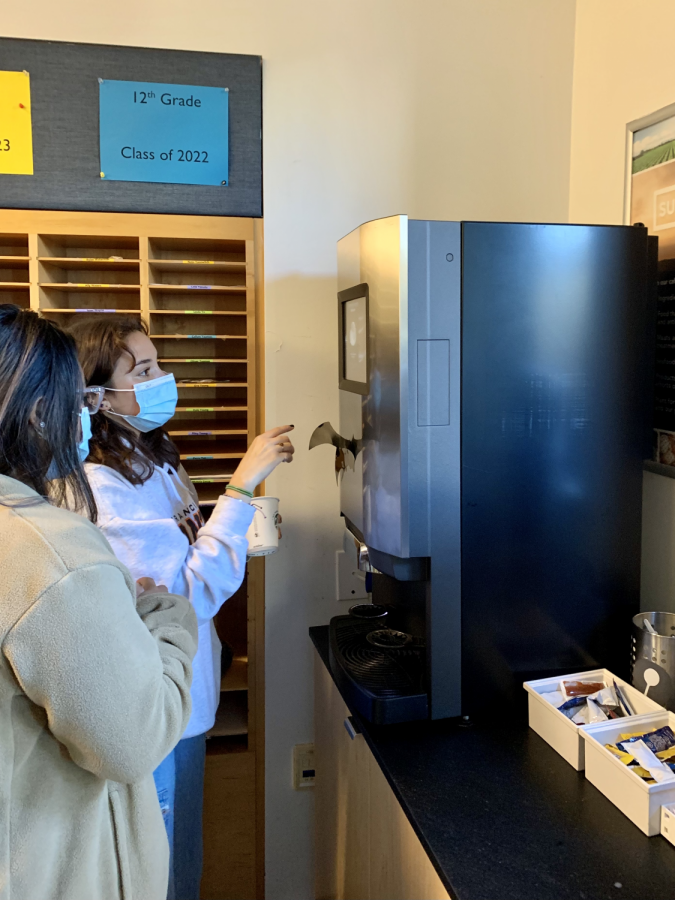Caffeine: helpful tool or addictive drug?
Urban students often show up to their 8:30 a.m. morning class with a cup of coffee or a Yerba Mate in hand. Between long days of school, extracurriculars and limited hours of sleep, caffeine can provide a much-needed boost of energy. In a recent poll of 130 students conducted by The Urban Legend, 61% of Urban students said that they consume at least one caffeinated beverage daily while 29.8% described themselves as caffeine-dependent.
Caffeine is a stimulant, meaning that it increases activity in the brain and central nervous system. Because of this, it is easy to build up a tolerance and become dependent on the substance. “Caffeine is so addictive because it spits out reward chemicals [like] dopamine,” said neuroscientist and Urban Math Teacher Randy Li. “Your brain thinks, ‘I’ve just had a really good experience. I’m going to do whatever I can to have that experience again.’”
Some people find themselves wondering how much of a reliance on caffeine is healthy and when to be worried about caffeine intake. “It’s a problem when you’re used to being sleep-deprived and then medicating with caffeine in order to reach an okay level of alertness. That’s dependency,” said Li. “Caffeine can cover up the fact that your body needs something different. When it comes to sleep and mental functioning, we seem to ignore it. We just say, ‘Oh, it’s fine. Coffee made me feel better.’”
Drinking caffeine while on medication can also be detrimental. One Urban student, who has been granted anonymity to protect their privacy, has been diagnosed with ADHD and uses Adderall, a prescribed medication, to improve their focus and academic experience. However, using their medication and caffeine simultaneously can sometimes prove harmful by increasing anxiety. “I will never have a highly-caffeinated drink when I’ve taken my Adderall the same day… I don’t like to be caffeinated all the time because it can heighten my anxiety in an unproductive way,” they said. “When on Adderall, my anxiety feels as if it’s being converted into productivity, but on a high amount of caffeine alone, it feels chaotic, like pure excited or nervous energy.”
Similar to prescribed medication, caffeine is a regular and helpful part of many students’ academic experience. Arielle Bransten ‘24 spoke on whether caffeine benefits her focus and performance at school. “My straight-up answer would be yes,” said Bransten. “My caffeine consumption has gotten to the point where I so heavily rely on it that I’m not even realizing the effects that it has on me. It’s become a habitual routine.”
Over a third of Urban student respondents feel that they rely on caffeine to focus and perform well at school. “Small amounts of caffeine are fine,” Li said. “Just be aware of what you’re putting in your body. Don’t use caffeine as medication. Use it as something that improves your day as opposed to a key to survival.”












